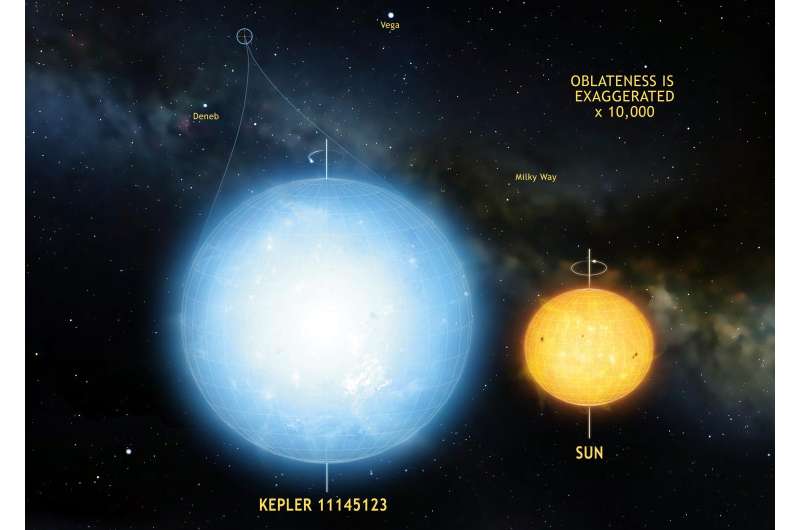November 21, 2016 weblog
Best of Last Week—Roundest object ever found, taking aim at 'fake' news and one face men recognize better than women

(Science X)—It was a big week for space science as a team with members from the Max Planck Institute for Solar System Research and the University of Göttingen found that a distant star was the roundest object ever observed in nature—they found that the difference between the equatorial and polar radii of a star named Kepler 11145123 was only 3 kilometers.
A team with NASA's THEMIS mission reported that they had found unusual origins of high-energy electrons that gain energy through electromagnetic activity in the foreshock region. And a team working on the New Horizons mission found evidence that suggested a water-ice ocean lies beneath Pluto's heart-shaped basin. Also, a Dutch firm unveiled a concept space suit for Mars explorers—Mars One showed off the suits, which are similar to those used by astronauts that went to the moon, but have extra features to deal with the red dust. And a team with Swinburne University of Technology and the University of Cambridge announced that they'd found evidence of a cosmic 'barcode' from a distant galaxy that confirms nature's constancy—showing that electromagnetism in a distant galaxy has the same strength as it does here on Earth.
In other news, a team of researchers at the University of Toronto unveiled a new AI algorithm taught by humans that learned beyond its training—they report that the system outperformed conventional systems by 160 percent. And a team at the University of Illinois described how they tweaked photosynthesis to boost crop yield—by boosting levels of three important proteins. A team at the University of Leeds reported on how they discovered a common cough virus that kills liver cancer cells and the hepatitis virus—reovirus, they found, stimulates the immune system, providing help in fighting both ailments. And there was more news about how Google and Facebook are taking aim at 'fake' news—which some have said may have actually influenced the outcome of the recent U.S. presidential election.
And finally, a type of face that men recognize better than women—a pair of researchers at Vanderbilt University found that men are better at recognizing the faces on Transformer toys. This, the researchers claim, suggests that facial recognition may be more experience-based than thought.
© 2016 Science X





















